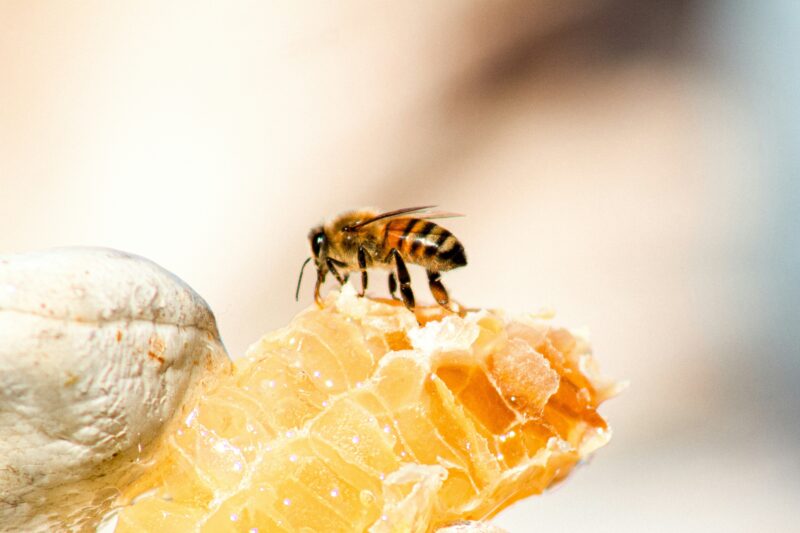
Sustainable and ethical beekeeping methods are approaches to beekeeping that prioritize the well-being of honeybees, the ecological balance, and the long-term health of the environment. Here's a breakdown of each term:
Sustainable Beekeeping Methods
- Environmental impact: Sustainable beekeeping aims to maximise the positive impact on the environment. This includes promoting natural methods and avoiding the use of synthetic chemicals, pesticides and fertilisers to support the well-being of bees and the health of the entire ecosystem.
- Resource management: Sustainable beekeeping practices focus on the efficient use of resources such as water, energy and land.
- Biodiversity conservation: Beekeeping practices that promote biodiversity by providing bees with a diverse range of plants to feed on contribute to sustainability.
Ethical Beekeeping Methods
- Well-being of the bees: In ethical beekeeping, the welfare of the bees takes centre stage. This includes providing them with suitable living conditions and adequate food.
- Avoidance of harmful practices: Ethical beekeeping utilises practices that promote the overall health of the colony. This includes restrained use of antibiotics to prevent antibiotic resistance in the colonies and avoiding practices that could cause significant stress or harm to the bees.
- Transparency and accountability: Ethical beekeeping involves transparency of practices and clear communication with consumers. Beekeepers should adhere to certain certifications or standards that ensure ethical treatment of bees.
Sustainable and ethical beekeeping methods often go hand in hand, as a holistic approach takes into account both ecological and ethical aspects of the well-being of bees and the entire ecosystem. The use of these methods not only supports the conservation of honey bee populations, but also promotes a healthier environment and the production of high quality, sustainable honey and bee products.